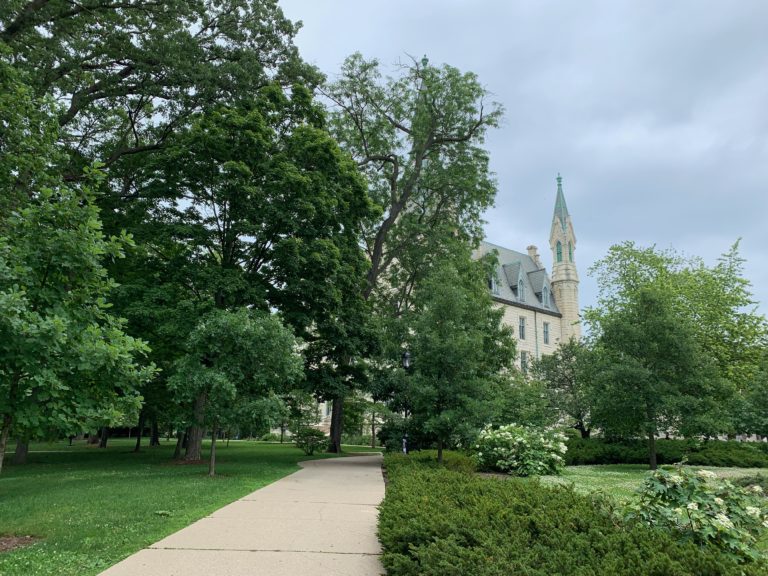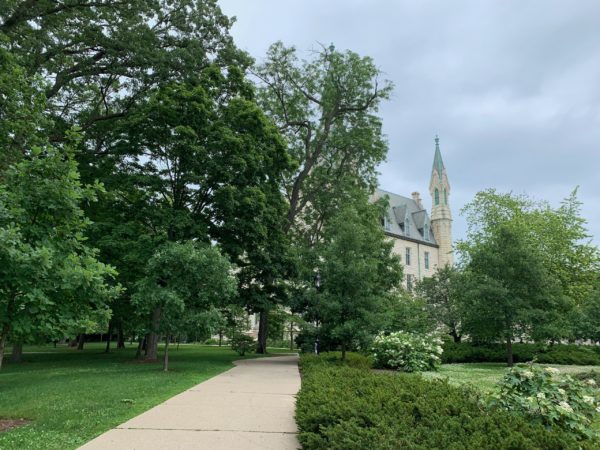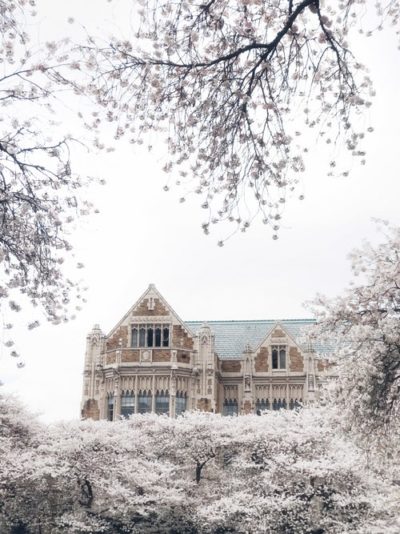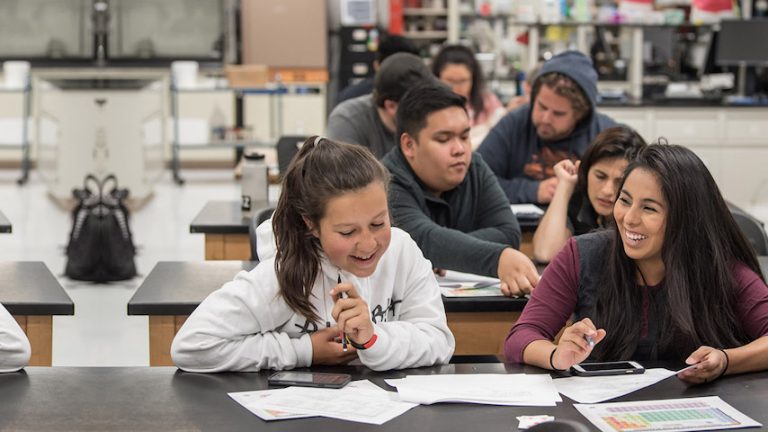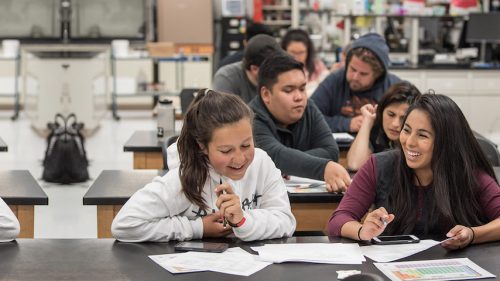Eight Big Questions for Colleges Planning to Re-Open
Last Updated on May 20, 2020 by Jill Schwitzgebel
As the list of colleges planning to re-open grows daily, I have questions. I’m guessing I’m not alone. Some might be so happy that their teen will get to move to campus as planned, that they have not yet stayed awake half the night thinking up all the questions. But, as an expert level over-thinker, I’ve thought of plenty on your behalf. Since the question about whether colleges will open their gates next Fall increasingly seems to be “yes,” then we need to have answers to our other questions too.
While I read lots of opinions, I have no idea what the right thing to do is. I can’t say that I’m an advocate for either re-opening or staying virtual. Honestly, I am incredibly grateful that I’m not a college administrator trying to make decisions about next fall. Hopefully, they have a task force providing them with the best ideas and advice.
And that leads me to the first question which I have for colleges that have already announced their plans:
 Who is helping the college to make this decision?
Who is helping the college to make this decision?

Institutions like UCSD or Vanderbilt already have world class medical experts on campus that can be part of a task force to help make decisions. Even then, those schools are including local health officials who are not part of the college community to advise them. When a college announces their decision to open, I want to know that they have consulted experts in the field of infectious disease and epidemiology. I want to know that they have consulted with the local public health professionals who have assured them that the local community and hospitals are prepared and can handle any influx. I want to know that they consulted with the faculty department heads, who assured them that the professors are also on board with the decision and the way the re-opening is being handled.
I do not want to hear that they were pressured by a board of directors to open their gates or that their financial officer got involved and said that it’s the best decision.
How will the college ensure that they have enough testing capacity?
Among universities that have stated that they plan to re-open, many have given the caveat that it depends on whether they have enough testing capacity. Many colleges, like Purdue, have announced that it’s possible every student and faculty member will get tested when they arrive on campus in August.
Most colleges are saying they plan to test students regularly and track contacts. That leads to other questions: What’s the plan for that? How are students selected for testing? How often? But most importantly, we know that at this point in May, there are still not enough tests in most places. How does the college know there will be enough by fall? Where are they getting the tests? Who is doing the testing?
How will the college implement social distancing and extra sanitizing, following guidelines?
I’m reading that many large universities will move away from classes in large auditoriums and instead, those classes will be online. But the reality is, those classes are not the only problem. One professor points out that a classroom that typically seats 35 would only be able to accommodate six or seven students following the rule to space 6 feet apart. It doesn’t seem feasible to have classes that size. And throughout the day, there are many classes using that same classroom. Who is wiping down door handles and desks between each class? Will more time be allowed between classes for cleaning?
During times that classes change, hallways in buildings are often very crowded. How will that situation be alleviated? I am reading that class times are being adjusted to account for more time between classes, and that some colleges plan to dismiss students from classrooms by row so that they can stay socially distant. I am reading about colleges placing arrows in the hallways to direct traffic flow one way only. I am not sure that I really believe that college students are going to take all of that seriously. While I realize that they should have the maturity to comply, I’m not convinced that all of them will see the point. Is there even a way to enforce following the guidelines?
And what about the dining hall? Most dining halls have buffet style serving. That will likely change. I am hearing buzz about one idea, which is that students will be given assigned times to eat to prevent overcrowding. This will require a fundamental change of campus culture that reminds me somewhat of middle school.
Don’t get me started on communal residence hall bathrooms and the potential issues there. Again, will personnel be added to clean more frequently? Are shared HVAC systems within residence halls a potential way for the virus to spread? How will that be addressed?
And finally, we are talking about college students. Colleges may be able to do a lot to keep classrooms and living spaces clean and allow for social distancing. But, ultimately, what about parties? This is college after all! Colleges may have some control over what happens on campus property in dorms. Even then, who is enforcing rules against large gatherings? Are we expecting student residence hall assistants to deal with that? And I am not sure there is any way to control what happens in apartments.
When a student tests positive, what next?
What is the plan for when a student does test positive? Certainly, there will be contact tracing. So, that could mean that dozens of students and faculty and staff members have to self-isolate after the exposure to prevent further spread. How does that work in a dorm with communal bathrooms? For students living away from home, who is taking care of them and bringing them meals, so that they don’t need to go to the grocery store or dining hall, etc? It wouldn’t be safe to send students home, even if they live nearby, as then they risk spreading the virus to family members in a different community, who are possibly at high-risk.
If there were to be a sizeable outbreak on campus or in the local community, what is the plan then? Would they then try to send students home to finish online, as they did in the spring?
When a student is quarantined, what are the academic expectations?
This is a huge one to me. I have seen various colleges address some of my other questions. But, I have yet to hear a single institution address this.
If students are not allowed to go to class due to exposure, how will they access lectures, labs, and classroom discussions? If they are quarantined because they are infected, they may not be well enough to attend classes, even online. They risk falling behind in their coursework. How will the college handle that? This to me is one of the most important questions for a family. If a college has made the decision to bring students back on campus, then it seems to me that they cannot penalize the student by making them withdraw and repeat the semester if they are unable to complete all of their academic work, due to illness. And if they do decide that the student must repeat the semester, they certainly cannot charge tuition, room and board for the missed semester. It would also be unfair to fail a student because they are too sick to complete their work.
If colleges expect parents to send their kids to campus, they must outline this policy to them ahead of time
How are colleges protecting high-risk students and faculty?
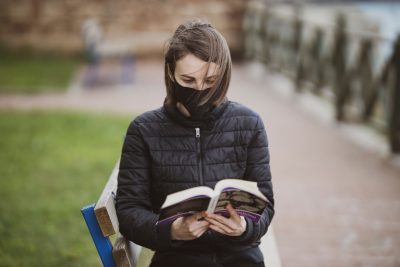
While it may be true that younger people do not require hospitalization as often and have better outcomes than older age groups, there are still plenty of undergraduate and graduate students who are at high-risk of catching the virus and of complications if they do get the virus. Is it safe to bring them back to campus? If so, how will you accommodate them on campus to keep them safe? And obviously, if they cannot safely be on campus, then the college needs to have a plan for how they will engage them at home. I would argue that if a college says that it’s impossible to protect a student at high risk, then maybe it’s not safe for them to open at all.
The median age for professors is age 49, as compared to the general workforce which is 42. 37% are over age 55. That means a lot of professors are in a high-risk category based on age alone. I’ve read many interviews with professors who are significantly concerned about being in an enclosed classroom with young adults in the Fall. We rely on these folks to educate, advise, and mentor our kids on campus. What steps is the college taking to ensure faculty’s safety?
That leads to the next obvious question…
What happens if a faculty member becomes sick?
This may be somewhat easier to handle than when a student becomes infected. But, does the professor teaching a specialized class on geopolitical extremism or quantum physics have a back-up who can teach the same subject matter? What happens if multiple professors in the same department become ill?
What are the plans for sending students home at the end of the semester?
We know that kids travel to colleges from all over the country. So, there is not only a risk to the campus community when they arrive on campus in August or September, there is now a risk to their home community when they leave to go home at the end of the semester. And, is it safe for a student to travel home for the weekend and then return to school? Do they have to quarantine when they get back to campus? Should they be tested that week? How does that get monitored?
I have read that some colleges are considering requiring kids to quarantine for two weeks prior to going home at the end of the semester. Will that be feasible to implement? I do know that several colleges have announced that they intend to adapt their fall calendar so that students will finish on campus at Thanksgiving, which should help to alleviate some issues with back and forth travel
Conclusion
I am certain I could come up with even more questions. I’d really like to see our young adults get back to campus next Fall for a whole variety of reasons. I understand that no college will be able to give an assurance that they will be able to keep their student body completely free from Covid-19. But, if they want kids on campus, they should still have very detailed plans for how they intend to keep our students safe…and what they will do when a student becomes sick. We know that psychologically, all students learn best when they have a safe learning environment. So, colleges need to provide that confidence if they are planning to welcome them to campus.
College campuses are notorious for being like a petri dish for germs. They are basically small cities – densely populated with all kinds of overlapping networks of people. When your student’s institution announces a plan to re-open, I would encourage you to seek answers to the questions above if the college doesn’t offer those details upfront. It would set off alarms to me if they can’t answer those, or any other questions that you have. Make certain they are truly prepared. And, at the same time, prepare your student so that they understand that the college experience they will have this fall is likely not representative of the experience that they will have during their other three years on campus.


